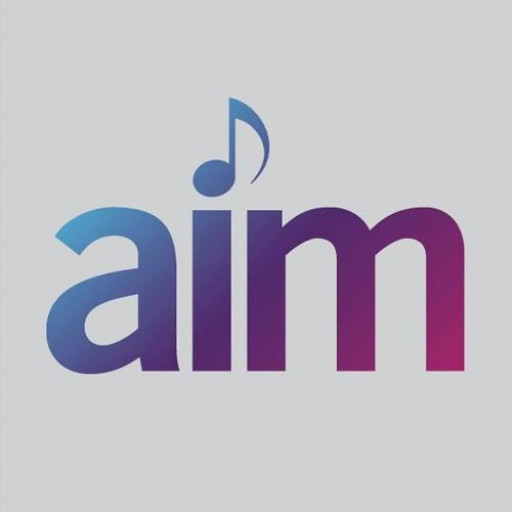The Bachelor of Music Industry at Melbourne Polytechnic offers students a comprehensive and practical education in the dynamic world of music production, management, marketing, and distribution. This program is designed to equip aspiring music industry professionals with the skills, knowledge, and industry connections necessary to succeed in various facets of the music business. Students will explore key areas such as music business management, digital marketing strategies, live event management, artist development, music copyright, and licensing, as well as the latest trends in music streaming and digital distribution. The curriculum combines theoretical understanding with hands-on experience, ensuring graduates are well-prepared to navigate the rapidly evolving music landscape.
Throughout the course, students will have access to industry-standard equipment and facilities, including recording studios, marketing labs, and live performance spaces. They will engage in a range of projects, from developing artist portfolios to planning and executing promotional campaigns, providing real-world experience. The program emphasizes industry engagement through guest lectures, internships, and networking opportunities with professionals from leading music organizations, record labels, production companies, and event management firms. By the end of their studies, students will have built a strong portfolio showcasing their skills and industry knowledge, increasing their employability in roles such as music promoter, artist manager, digital marketing specialist, record label executive, and live event coordinator.
Melbourne Polytechnic’s Music Industry program emphasizes innovation and creativity while grounding students in the essential business fundamentals needed for a sustainable career. The flexible delivery options, including full-time, part-time, and online study modes, make it accessible to a diverse student body. Graduates of this program often pursue careers across various sectors within the music industry, including independent music production, artist management, entertainment marketing, and music venue operations. The program’s strong industry links, practical focus, and comprehensive curriculum make it an ideal choice for those passionate about turning their love of music into a rewarding professional career.
The Bachelor of Music Industry at Melbourne Polytechnic is a comprehensive program designed to prepare students for a dynamic career in the music and entertainment sectors. This course provides a blend of theoretical knowledge and practical skills essential for success in the evolving music industry landscape. Throughout the program, students will explore a wide range of topics including music production, artist management, marketing, distribution, copyright law, and digital media. The curriculum emphasizes hands-on experiences, enabling students to develop core competencies such as studio recording, live sound, event management, and digital marketing strategies. Students will engage with industry-standard software and equipment, ensuring they gain practical knowledge applicable to real-world situations. The program also includes opportunities for internships and industry placements, fostering professional networking and industry connections. By the end of the course, graduates will have a solid understanding of how the music industry operates, along with the skills necessary to navigate and innovate within it. The Bachelor of Music Industry aims to equip students with both creative and business skills, preparing them for careers in music production, artist management, record label operations, event promotion, and digital media. The vibrant campus environment and access to industry experts provide students with valuable insights and mentorship opportunities. This degree combines academic learning with practical application, ensuring graduates are job-ready and able to contribute effectively to the music industry's growth and diversification.
Program requirements for the Bachelor of Music Industry at Melbourne Polytechnic typically include the completion of foundational and specialized coursework in music production, management, and industry practices. Prospective students are generally expected to have completed a recognized secondary education qualification, such as Year 12 or an equivalent, demonstrating proficiency in English language skills. Applicants may also need to submit a portfolio or samples of work showcasing their interest or experience in music, along with an interview or audition in some cases. The curriculum emphasizes practical skills, including audio engineering, music business, digital music workflows, and live event management, ensuring graduates are well-equipped for diverse roles within the music industry. Additionally, students are often required to undertake industry placements or internships, providing real-world experience and professional networking opportunities. The program may also stipulate the completion of core subjects in business principles, copyright law, and music production techniques, complemented by elective courses allowing specialization in areas such as artist management, music marketing, or recording arts. Throughout the course, students are assessed through a combination of practical projects, written assignments, presentations, and examinations. Eligibility criteria might include meeting health and safety requirements and a commitment to online or on-campus attendance, depending on the mode of delivery. Successful completion of the program requires passing all required modules with satisfactory grades and meeting the attendance and participation standards set by the institution. This comprehensive curriculum aims to develop both technical competencies and industry insights, positioning graduates for employment or entrepreneurship in the dynamic music landscape.
The Music Industry program at Melbourne Polytechnic offers a range of financing options to support students throughout their studies. Prospective students are encouraged to explore various funding sources to make their education financially accessible. The institution provides detailed information about tuition fees, which vary depending on the level of study and specific courses undertaken. Students enrolled in the program can typically access government assistance schemes, such as Commonwealth Supported Place (CSP) arrangements, which reduce the financial burden by subsidizing part of the tuition fee. Additionally, Melbourne Polytechnic participates in the Australian Government's VET Student Loans program, allowing eligible students to defer their fees and repay them through the tax system once they are earning above a set income threshold. For international students, the program offers specific tuition fee schedules, which usually require full payment prior to or at the commencement of studies, but options for installment payments might be available based on individual arrangements.
Students are advised to consider additional costs beyond tuition fees, including equipment, software, and materials necessary for practical components of the program. Financial assistance such as scholarships and grants may be available to high-achieving students or those demonstrating financial hardship. These are typically awarded based on merit or need and are competitive in nature. Melbourne Polytechnic also encourages students to explore external funding options, including state and federal government grants, student loan schemes, and private scholarships offered by industry organizations or community groups.
To support students in managing their finances, Melbourne Polytechnic provides financial counseling services, which include budget planning and guidance on accessing financial aid. The institution’s flexible payment plans allow students to pay tuition fees in installments over the duration of the program, reducing upfront costs. International students are also advised to budget for visa application fees, health insurance, and living expenses, which are important considerations when planning their studies abroad.
Overall, the funding landscape for students in the Music Industry program is designed to be accessible and supportive, helping students focus on their education and career development without undue financial stress. The institution encourages applicants to contact the admissions office or student services for personalized advice and detailed information regarding specific financing options applicable to their circumstances.
Melbourne Polytechnic offers a comprehensive program in the Music Industry designed to prepare students for a dynamic career in the music sector. This program covers a wide range of essential skills including music production, live sound, artist management, music marketing, and industry entrepreneurship. Students gain hands-on experience using industry-standard equipment and software, ensuring they are industry-ready upon graduation. The curriculum emphasizes practical skills through internships, industry projects, and collaborations with professional musicians and organizations, fostering real-world experience. The program also explores the legal and business aspects of the music industry, such as rights management, contracts, and music publishing, to provide students with a well-rounded understanding of the industry landscape. Melbourne Polytechnic’s state-of-the-art facilities, including recording studios, live rooms, and digital labs, support intensive practical learning. The program aims to develop students' creative, technical, and business skills, enabling them to pursue careers as music producers, sound engineers, live sound technicians, artist managers, or marketing specialists within the music industry. Additionally, students have opportunities to participate in industry events, performances, and showcases that enhance their professional networks. The program is suitable for individuals passionate about music and interested in the behind-the-scenes aspects of the music business, offering both foundational and advanced knowledge tailored for a competitive industry. Graduates of this program are prepared to enter various roles in the thriving music industry in Australia and internationally, equipping them with the skills necessary to adapt to industry changes and innovations.



